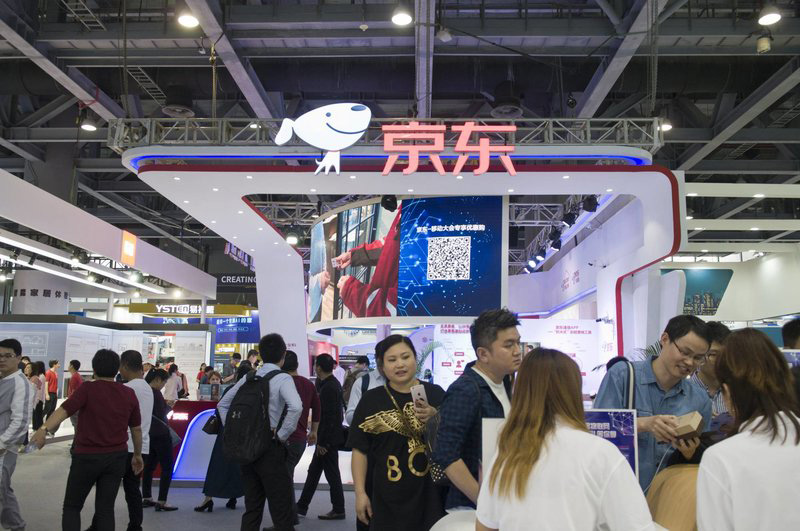京东不是个案,为何一些中国明星科技企业流年不利?

|
最近一系列媒体报道显示,中国第二大电商京东商城计划大幅裁员,以此遏制亏损,安抚投资者。这一消息突显出,在宏观经济放缓之际,中国科技企业面临的巨大挑战。
4月9日,数字媒体《The Information》援引投资者消息称,在纳斯达克上市的京东准备裁撤多达1.2万名员工,约占员工总人数的8%。彭博社和商业数字媒体Quartz也报道,京东打算裁员,已经撤销了一些录用意向函。
在传出京东裁员的报道之前,其他中国科技公司已经有类似的人员缩编行动。中国社交媒体巨头、线上游戏服务商腾讯在上个月表示,将裁撤多达10%的中高层管理人员。今年2月,网约车巨头滴滴出行表示,将裁员15%。
有时,裁员是企业因为管理不善或者未能令监管层满意而出此下策。以腾讯为例,此前中国监管机构曾经冻结视频游戏的版号审批长达九个月,称担心网游上瘾,造成青少年视力下降。滴滴则是因为去年发生网约车司机杀害女乘客的凶案而受到惩罚。
京东的困境部分源于创始人及首席执行官刘强东涉案。去年7月在美国阿斯彭举行的《财富》科技头脑风暴大会上,刘强东在接受《财富》杂志执行主编赖新基的采访时还表现得信心满满。可就在一个多月后的8月31日,这位仍然稚嫩的企业家就在明尼阿波利斯被捕,罪名是性侵明尼苏达大学一位21岁的学生。同年12月,亨内平县的检控官以证据不足为由撤销了起诉。掌握京东80%投票权的刘强东表示,他和那名女生是两情相悦发生关系,不承认有过不当行为。但这起事件的细节让舆论给他冠以下流的恶评,此后,他消失在公众视野中。
裁员也凸显了中国科技企业的工作环境恶化,引发了全社会对科技领域工作待遇的热议。直到今天,一些中国科技业人士还反常地以狂热地长时间工作为荣。科技圈对这种工作文化有个热门的称呼:996。指的是如果想在这行获得成功,就必须自愿朝九晚九,每周工作六天。而正如Quartz指出的,随着越来越多中国的初创公司裁员,昔日国内科技企业优渥的工作岗位开始变得越来越像工厂里打工仔的饭碗那样岌岌可危。(财富中文网) 译者:Pessy 审校:夏林 |
China’s second-largest e-commerce company, JD. com, plans deep job cuts to staunch losses and reassure investors, according to a slew of recent media reports, highlighting the mounting challenges faced by Chinese tech firms as their nation’s economy loses steam.
The Information, citing investors, reported on April 9 that NASDAQ-listed JD.com is preparing to lay off as many as 12,000 people, or roughly 8% of its workforce. Bloomberg and Quartz also report the company is planning cuts and has rescinded some job offers.
Reports of layoffs at JD.com follow announcements of similar retrenchment at other Chinese tech companies. Tencent Holding, China’s mammoth social media and online games provider, said last month it would sack or demote up to 10% of senior and middle management. In February, ride-hailing giant Didi Chuxing said it would slash its workforce by 15%.
In some cases, the cutbacks are a response to governance failures or clashes with regulators. In the case of Tencent, Beijing slapped a nine month ban on new video games licenses for the company; regulators said they were concerned about online addiction and the deteriorating eyesight of the nation’s youth. Didi was chastened by the murder of two female passengers last year by drivers.
JD’s woes partly reflect the misadventures of its founder and CEO Richard Liu. Liu radiated confidence when Adam interviewed him at Brainstorm Tech in Aspen last July. But on August 31, the boyish entrepreneur was arrested in Minneapolis on charges of raping a 21-year-old University of Minnesota student. In December, the Hennepin County prosector dropped the case citing insufficient evidence. Liu, who controls 80% of JD.com’s voting rights, says the relationship was consensual and denies wrongdoing. But details of the incident cast him in a nasty light, and he has since shunned public appearances.
The layoffs also underscore a harsher operating environment for Chinese tech firms, igniting a broad debate about working conditions in China’s tech industry. Until recently China’s tech workers took a kind of perverse pride in working long hours at a feverish pace; the famed moniker for Chinese tech work culture is “996,” reflecting the notion that, to succeed, you have to be willing to work from 9 a.m. to 9 p.m. six days a week. But, as Quartz notes, with more and more Chinese ventures jettisoning workers, once-prized positions at the nation’s tech companies are starting to look every bit as precarious as work in China’s factories. |













